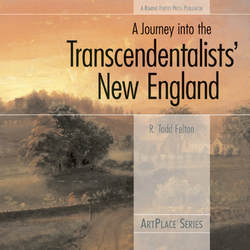Читать книгу A Journey Into the Transcendentalists' New England - R. Todd Felton - Страница 24
На сайте Литреса книга снята с продажи.
Like-Minded Seekers
ОглавлениеWhile there would remain close ties between the two, Transcendentalism soon outgrew the confines of Unitarianism and needed forums beyond pulpits and theological debates. Although Transcendentalist ideas were discussed informally during innumerable dinners, walks, and post-lecture conversations, two meeting places played an especially important role in fashioning this new American literary and philosophical tradition: the Transcendental Club and Elizabeth Palmer Peabody’s West Street bookstore and foreign language library.
The Transcendental Club officially began on September 19, 1836, as a meeting of what Frederic Francis Hedge called “like-minded seekers.” Hedge, Ralph Waldo Emerson, and George Ripley had met after Harvard’s bicentennial celebration the week before and created what they called a “symposium” to discuss ideas of religion, philosophy, literature, education, and culture away from the restrictive arenas of the church and Harvard. The first meeting took place at George Ripley’s house in Boston. Philosopher and educator Bronson Alcott, Unitarian minister James Freeman Clarke, and a handful of Harvard Divinity School students joined Ripley, Hedge, and Emerson.
Over the next four years, the group met nearly every month when Frederic Hedge came to Boston from his home in Bangor, Maine. The meetings were held at members’ houses around Boston and Concord, although never in Cambridge. The loose and rotating membership included many of the intellectual giants of the era: educator and publisher Elizabeth Peabody; the feminist critic Margaret Fuller; the poet Jones Very; Ellery Channing, the poet who was Reverend Channing’s nephew; the poet and caricaturist Christopher Cranch; and many others.
The Transcendental Club was not for the faint of heart or mind; the topics set for the meetings, or “symposiums” as they preferred to call them, were as weighty as they were abstruse. Over the four years of their meetings, the group covered such philosophical topics as mysticism, genius, education, religion, pantheism, and inspiration, to name just a few.
